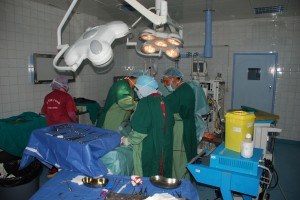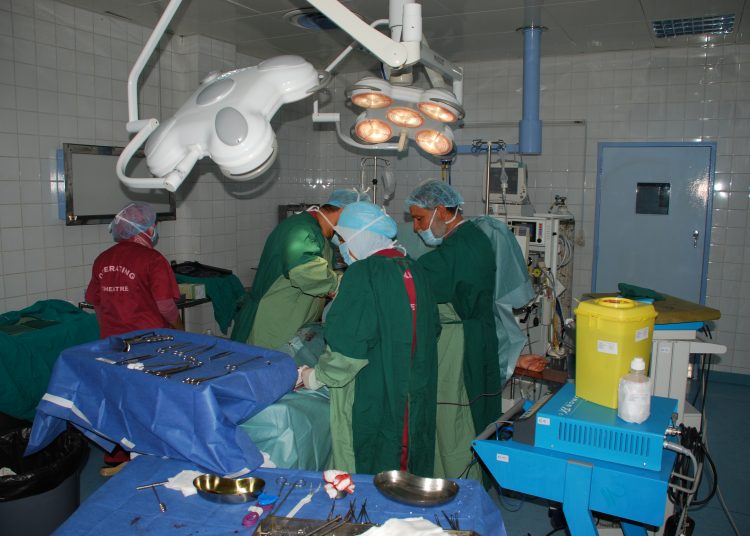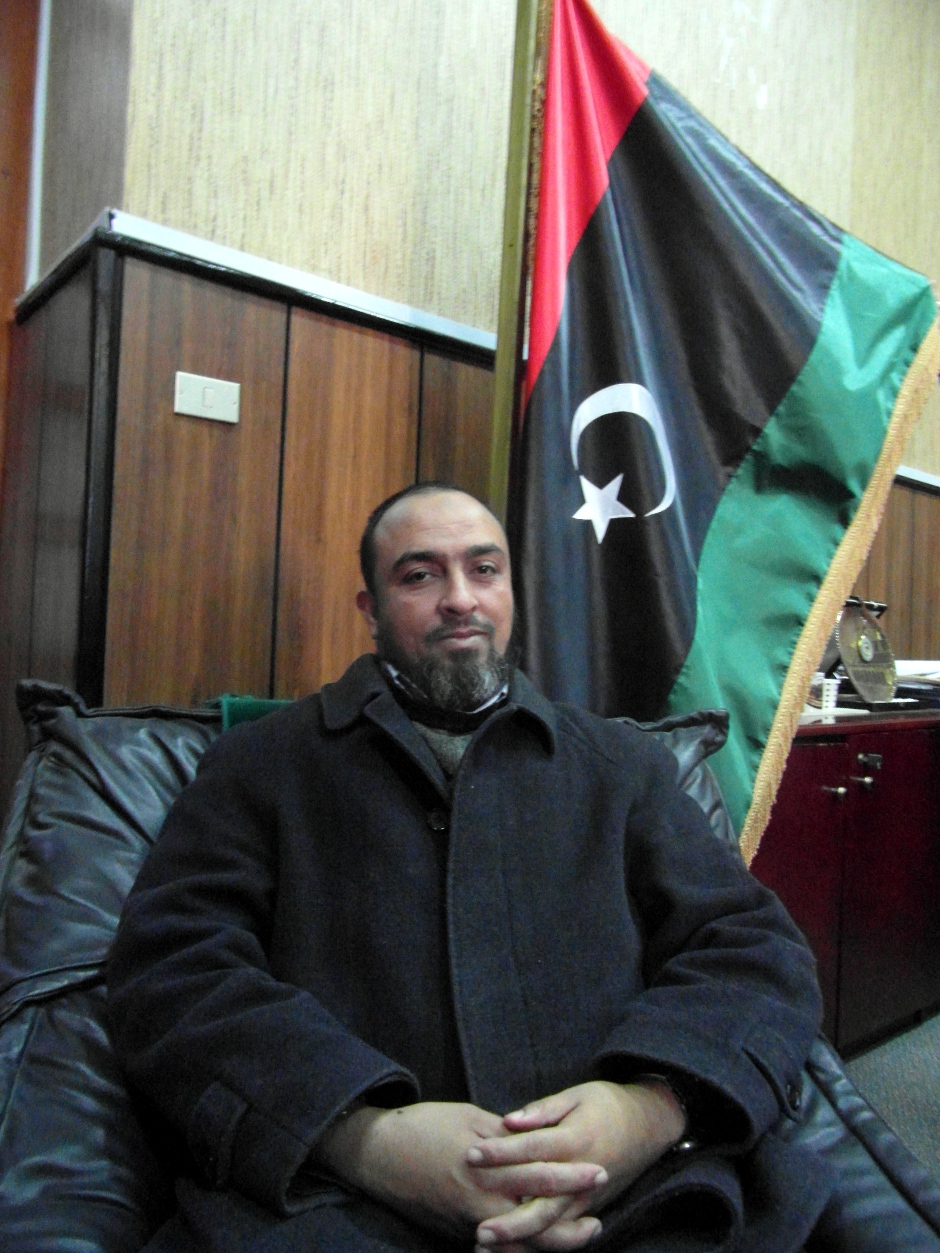By Dr Nagi Giumma Barakat.

London, 2 February 2013:
The former health minister says that major investment into data collection has to be . . .[restrict]made into the health service to make it work properly and that it is a golden opportunity for information service companies.
Any leader who has a vision to develop a sector or organisation, whatever it is, needs data so he or she can put forward a strategic plan to improve or move the sector forward. Without accurate data, it is very difficult to develop anything. Unfortunately, Libya lacks such data — and that is true in all ministries.
Nowhere is that more so than in the Libyan health service. Data is insufficient, at best patchy, and it is vital to make plans in health services. Under the old regime, there was no systematic collection of data or accurate analysis. What existed is not very accurate. It always collected in a hurry and to please ministers or Qaddafi himself. The managers and administrators were terrified when asked to do survey and found multiple problems or indicators showing incompetence. So they went and forged the data and kept the decisions makers blind. There was a systematic policy to cover up any mistakes, whether it was data collection, decision-making or implementing certain measures to improve any services in Libya.
Since the success of 17th February revolution, and new governments in Libya, no attention has been paid to this issue, yet it is vital and important in helping ministers achieve their strategic goals. Is it because of inexperience? Or lack of expertise? Or instability or is it a case that there are other priorities? I think information collection is very important for crisis management — and it was not done by Libyan governments before and since the revolution.
Both in the past and now, the health ministry has faced major obstacles in collecting data due to the following reasons:
- No funds allocated to fund data collection at the level of the Ministry of Health or local health authorities;
- No funds allocated for collecting data or analysing it due to the inexperience of people who now running the data collection centre at the Ministry of Health;
- There is no money to train hospital and primary healthcare staff to collect data, so the staff continue to provide inaccurate data due to their ignorance and poor experience in this field;
- Doctors often make up data, either because they do not care or have no experience in collecting and analysing it due to lack of training in this field at medical schools and when they start practicing medicine.
- Doctors tend to protect their image by providing excessive numbers of patients they have treated, but not the numbers who died or who were infected or suffered other consequences because of their malpractices;
- The managers and administrator lack the experience and training in understanding the value of collecting data; this lead them to focus their efforts on other activities and to ignore their role as data collectors;
- Many managers and administrators deliberately hide significant data so they will not exposed to criticism and only provide data that may generate incentives for them rather than helping to improve quality of services and care to public;
- Many systems are too poorly managed across all sectors, and worse at the level of ministry of health to allow the managers and administrators to exercise more control over what information they release;
- Doctors do not value data collection, nor pay attention to it;
- Hospital management does not support data collection because it could demonstrate their inability to run the hospital efficiently.
The Health Information Centre in Libya is the prime source of information for the sector in Libya but it lacks of leadership, money and plans. Measures need to be taken to improve the centre in order to achieve the Health Ministry’s strategic plans. Without implementing such measures, it will be very difficult to build a quality health care system in Libya. Data gathering and propers analysis will help the Health Ministry convince the Planning Minister to agree to strategic plan put by it to develop health services in Libya.
These measures needing to be taken include:
- A central department for health information with annual statistical reports from other centres feeding information regularly to this centre;
- Staff trained on how to gather and use data for decision-making related to public healthcare and for achieving goals drawn up by a strategic committee at the chaired by the Minister of Health;
- A culture of keeping medical records (patients’ notes, activities of inpatient and outpatient care, primary health care activities, medicine, staff, appraisal, mortality and morbidity, and so forth;
- Managers, doctors and administrators encouraged to use statistical approaches to evaluate their work and measure their achievement through policies and standards;
- Build up expertise within the health information centres that develops statistical documentation and analyses data effectively and accurately;
- Provide information technology for collecting, storing and analysing data;
- Health surveys, a central data base and library are very important departments in gathering information as well as providing proper statistical information;
- As a result of data collection and analysis, the dissemination of information about disease in Libya and surrounding areas so as to enable the Heath Ministry to make plans for control and eradication;
- Should introduce and encourage studies in health statistics to learn methodologies in different areas;
- Promote epidemiological studies and coordinate work between different centres to enable the Heath Ministry to plan and impact on all people across Libya;
- Periodic evaluation of the health information centre (audit, commissioning and appraisal)
There is an excellent opportunity here for investors to come forward with a proposal to help Libyan government tackle the data collection issue. Expertise in this field are scarce. The new Libyan government should not be ashamed to ask for help ; data collection is a vital tool for all decision makers.
Information in regards to the health sector is absent in Libya and it is one of reasons so much money been spent on building, importing different drugs, equipment and hiring foreign employees. This all done without clear data available to enable decision-makers to know what is needed in next five to ten years.
The lack of data is a massive impediment. For example, no one knows how many people were injured during the liberation or even how many were killed or went missing during the struggle. The numbers are inaccurate because there have been no systematic collection of data. I myself instructed the director of the information centre at Health Ministry to set up ten committee to collect data from all over Libya as to the war wounded, martyrs and missing persons. This was to enable us to know how to provide adequate health care for this group and was to be a priority. Unfortunately, nothing was done before I left office and till today nothing still has been done. Whether this is due to inability or obstruction or something else remains to be seen.
It is now a major priority for Libya to create information centres for everything and each minister should be planning his own centre, setting forth measures, as above, to make it effective. If this does not happen, Libya will keep spending money as if pouring water down a hole. Strategic planning needs accurate data and without data Libya will take decades to stand on its feet.
Dr Nagi Giumma Barakat
Former Minister of Health, NTC
Consultant paediatric neurologist
[/restrict]









